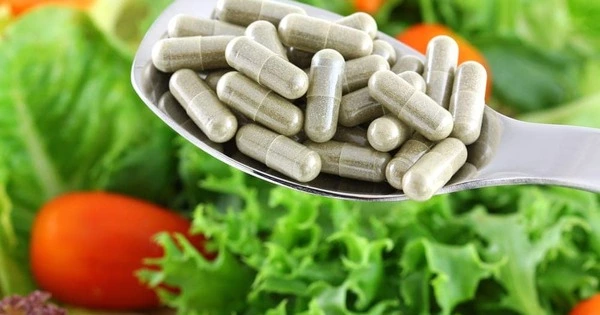Gluten-free fiber supplements are often used to help individuals increase their daily fiber intake. These supplements may be made from a variety of sources, such as psyllium, chia seeds, flaxseeds, and other plant-based materials. These supplements are usually designed to be mixed with water or other liquids and consumed as a drink.
Scientists have created the reference genome for the source of the popular fibre supplement, psyllium husk, for the first time, which could increase supply of the versatile plant-derived product. Experts at the University of Adelaide studied psyllium, also known as Plantago ovata.
“We extracted and sequenced deoxyribonucleic acid (DNA) from leaf tissue to construct the chromosome-level reference genome for Plantago ovata and used ribonucleic acid (RNA) from other parts of the plant to predict the function of its genes,” said Professor Rachel Burton of the University of Adelaide’s School of Agriculture, Food and Wine.
“This is a significant development because it will pave the way for improvements to the quality and quantity of psyllium crops.”
We extracted and sequenced deoxyribonucleic acid (DNA) from leaf tissue to construct the chromosome-level reference genome for Plantago ovata and used ribonucleic acid (RNA) from other parts of the plant to predict the function of its genes.
Professor Rachel Burton
DNA is the molecule that contains the genetic information required for an organism’s development and function, whereas RNA acts as a messenger, carrying DNA instructions to build proteins. This discovery, which was published in the journal Scientific Reports, is the result of a decade-long investigation into the genetic makeup of the plant by University of Adelaide researchers.
For thousands of years, people have used psyllium as food and medicine. The plant’s seeds are milled to produce soluble fiber, which is used in pharmaceuticals and supplements to improve gut health and blood cholesterol control. Psyllium is also a common gluten-free food ingredient. The seeds and their husks are naturally gluten-free and when mixed with water, produce a sticky substance that replicates some of the functions of gluten in bread.
This quality makes psyllium an essential ingredient in gluten-free bread and it can be used in a whole range of other baked goods. With the market size of gluten-free foods expected to reach USD$8.3 billion in 2025, demand for psyllium is predicted to increase.

The plant is highly susceptible to changes in environmental conditions and diseases which not only affects the yield, but also the price and quality of this valuable commodity.
“To date, efforts to improve the quality and quantity of psyllium husk have been hampered by the lack of a reference genome,” said the University of Adelaide’s Dr James Cowley, who is also from the School of Agriculture, Food and Wine and co-authored this study.
“The creation of a high-quality Plantago ovata reference genome will not only aid breeding programs, but will also support lab-based experiments to better understand how carbohydrates in plants are constructed so that we can tailor them for food and pharmaceutical uses.”
Dr Lina Herliana, the first author, conducted this study while pursuing her PhD at the University of Adelaide’s Waite Campus. “We anticipate that the availability of this reference genome will result in the development of new cultivars with higher yields and greater adaptability to environmental conditions. This will stabilize psyllium product production and seed or husk prices “Dr. Herliana stated.
To increase the bulk of a gluten-free fiber supplement, one potential method is to add additional fiber sources to the supplement. For example, adding ground flaxseed or chia seeds to a psyllium-based supplement may increase its bulk and overall fiber content. It’s important to keep in mind that adding too much fiber too quickly can cause digestive discomfort, so it’s important to gradually increase fiber intake and drink plenty of water.
















